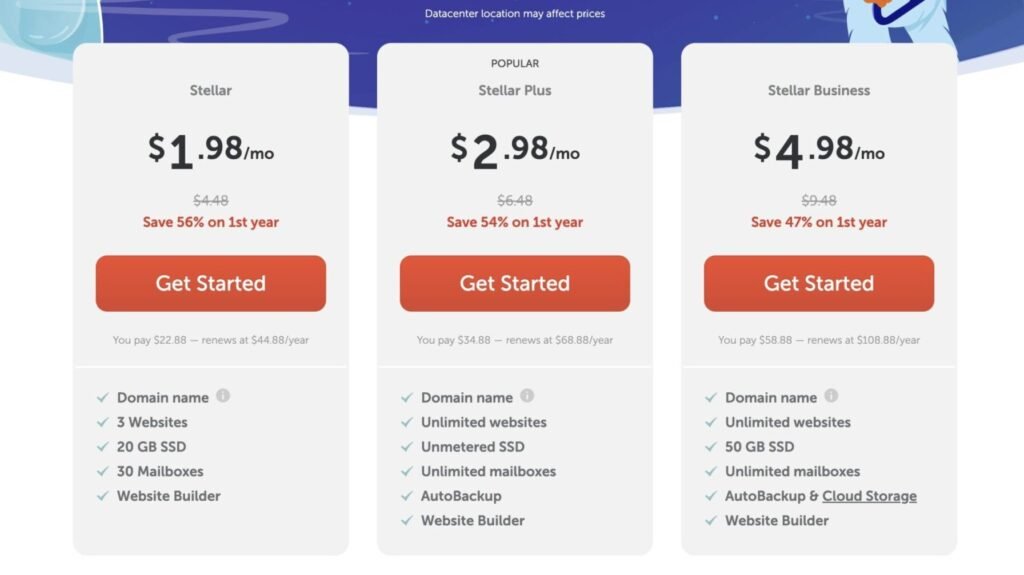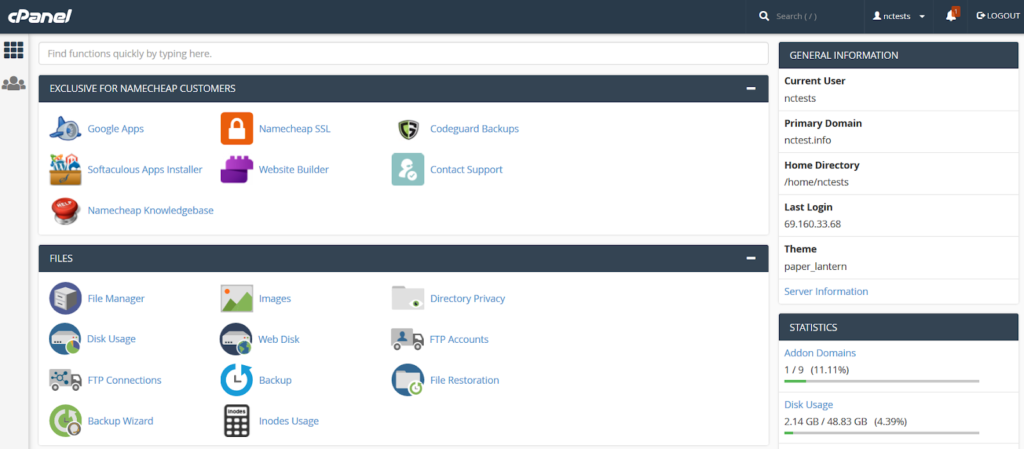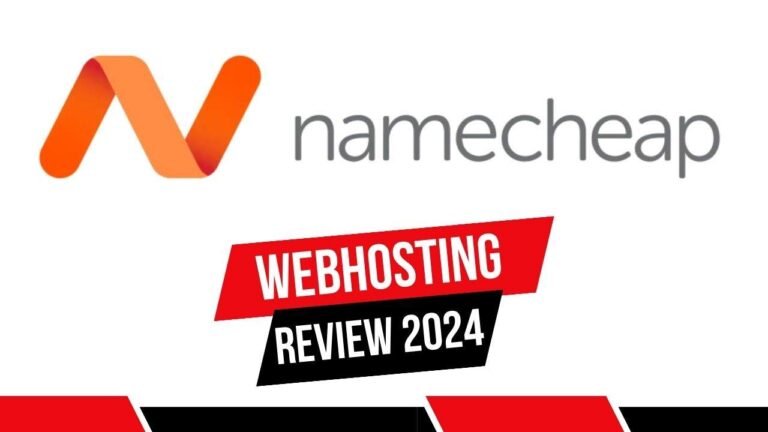Discover the best web hosting for small business in 2024 that best suits your needs and give you maximum performance with the best price.
Running a small business in today’s digital age means having a strong online presence. One of the fundamental steps to achieving this is choosing the best web hosting service. With myriad options available, it can be daunting to select the right one for your small business. In this article, we’ll delve into why Namecheap Hosting stands out as the best web hosting for small businesses.

Table of Contents
Understanding the Importance of Web Hosting
Web hosting is more than just a service; it’s the backbone of your online presence. It affects everything from your website’s loading speed to its security and reliability. Choosing a robust hosting provider ensures that your site is always up and running smoothly, providing a seamless experience for your visitors.
Why Web Hosting Matters
- Performance: A good web hosting service enhances your website’s performance, ensuring fast load times which is critical for retaining visitors.
- Security: Quality hosting services offer advanced security features that protect your site from threats.
- SEO: Reliable hosting positively impacts your SEO rankings by reducing downtime and improving site speed.
- Customer Trust: A consistently available website builds trust with your customers.
Why Namecheap Hosting is The Best Web Hosting for Small Business
Namecheap has made a name for itself in the hosting industry with its affordable, reliable, and feature-rich services. Here are some compelling reasons why Namecheap is the best web hosting for small Business
Affordability
Namecheap offers some of the most competitive prices in the market. For small businesses, managing costs is crucial, and Namecheap’s pricing structures allow you to get excellent service without breaking the bank.

They provide various plans tailored to different needs and budgets, making it accessible for everyone.
Reliability
One of the most critical aspects of web hosting is uptime. Namecheap guarantees a 99.9% uptime. This means your website will almost always be online, ensuring that your customers can access your services and products whenever they need them.
User-Friendly Interface
For small business owners, time is money. Namecheap’s user-friendly interface makes it easy to manage your hosting without needing extensive technical knowledge.

Their intuitive control panel allows you to handle all aspects of your website effortlessly.
Key Features of Namecheap Hosting
1. Easy Domain Registration
Namecheap started as a domain registrar and continues to excel in this area. They offer a wide range of domain extensions at competitive prices, making it easy to find and register the perfect domain for your business.
2. Free Website Builder
For those just starting, Namecheap offers a free website builder. This tool allows you to create a professional-looking website without needing to hire a designer or developer. With drag-and-drop functionality, you can have your site up and running in no time.
3. Security Features
Security is paramount, and Namecheap doesn’t compromise on this front. They provide free SSL certificates with their hosting plans, ensuring that your site is secure and that your customers’ data is protected. Additionally, they offer advanced security options such as DDoS protection, privacy protection, and more.
4. Customer Support
In the world of web hosting, having reliable customer support is essential. Namecheap offers 24/7 customer support through live chat and email. Their support team is knowledgeable and responsive, helping you resolve any issues swiftly.
5. Scalable Plans
As your business grows, your hosting needs will evolve. Namecheap offers scalable hosting plans that can grow with your business. Whether you start with a shared hosting plan and need to move to VPS or dedicated hosting, Namecheap makes the transition smooth and straightforward.
6. Backup and Restore
Data loss can be catastrophic for any business. Namecheap provides automated backup and restore options, ensuring that your data is always safe and can be recovered in case of any mishap.
Comparing Namecheap with Other Hosting Providers
While there are numerous web hosting providers available, Namecheap stands out for several reasons. Let’s compare it with some of the other popular options:
Namecheap vs. Bluehost
Bluehost is another well-known hosting provider, but it comes at a higher price point compared to Namecheap. While Bluehost offers excellent features and performance, Namecheap provides similar benefits at a more affordable cost, making it ideal for small businesses on a budget.
Namecheap vs. GoDaddy
GoDaddy is known for its extensive marketing and wide range of services. However, Namecheap outperforms GoDaddy in terms of pricing, customer support, and the simplicity of its interface. Small business owners might find Namecheap’s offerings more straightforward and cost-effective.
Namecheap vs. SiteGround
SiteGround is praised for its performance and customer support. However, it is significantly more expensive than Namecheap. For small businesses that need a reliable and affordable hosting solution, Namecheap offers a great balance of cost and performance.
How to Get Started with Namecheap Hosting
Step 1: Choose Your Hosting Plan
Namecheap offers various hosting plans, from shared hosting to VPS and dedicated servers. Assess your business needs and select the plan that best suits your requirements.
Step 2: Register Your Domain
If you don’t already have a domain, you can easily register one with Namecheap. They offer a wide variety of domain extensions and competitive prices.
Step 3: Set Up Your Website
With Namecheap’s free website builder, setting up your site is a breeze. Choose a template, customize it to your liking, and add your content.
Step 4: Secure Your Site
Activate the free SSL certificate provided with your hosting plan to ensure your site is secure. Consider additional security features based on your business needs.
Step 5: Launch and Promote Your Site
Once your site is set up and secured, it’s time to launch. Promote your website through various channels such as social media, email marketing, and SEO to attract visitors.
Tips for Optimizing Your Small Business Website
Optimize for Speed
Website speed is crucial for both user experience and SEO. Use tools like Google PageSpeed Insights to identify areas for improvement. Namecheap’s robust infrastructure will help ensure your site loads quickly.
Mobile-Friendly Design
With a significant portion of web traffic coming from mobile devices, having a mobile-friendly design is essential. Namecheap’s website builder includes mobile-responsive templates to ensure your site looks great on any device.
Use SEO Best Practices
Implement SEO best practices such as using relevant keywords, creating quality content, and building backlinks. Namecheap provides SEO tools and resources to help you optimize your site effectively.
Regular Backups
Ensure that your site is regularly backed up to prevent data loss. Namecheap’s automatic backup feature simplifies this process.
Monitor Analytics
Use tools like Google Analytics to monitor your website’s performance. Understanding your site’s traffic, user behavior, and conversion rates will help you make informed decisions to improve your online presence.
Conclusion
Choosing the right web hosting provider is a critical decision for any small business. Namecheap Hosting offers a perfect blend of affordability, reliability, and features tailored to meet the needs of small businesses. With its user-friendly interface, robust security measures, and excellent customer support, Namecheap stands out as the best web hosting for small business. By following the tips and steps outlined in this article, you can set up a successful online presence that drives growth and success for your business.


